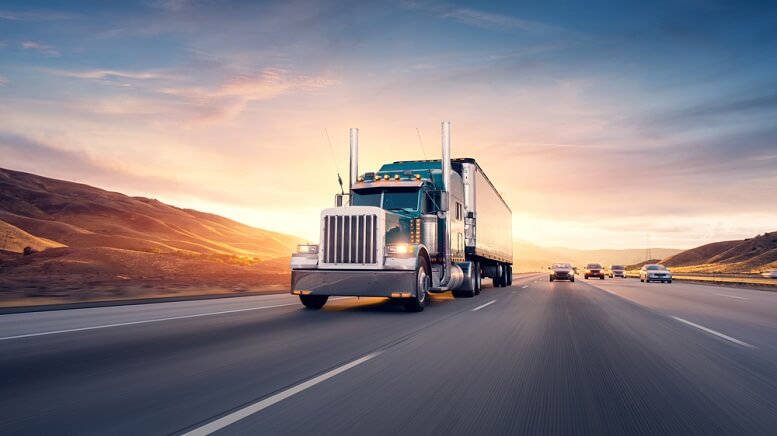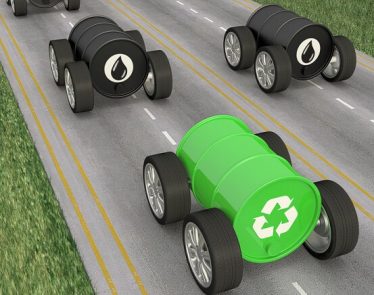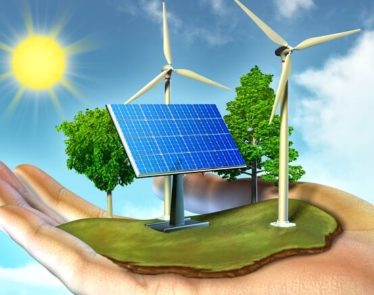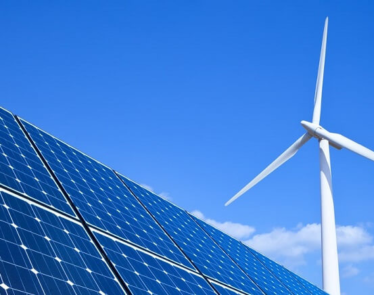
The transportation industry is responsible for 28 percent of greenhouse gas emissions in the United States. Of those emissions, medium and heavy-duty trucks are responsible for 23 percent. That’s why the trucking industry is under enormous pressure from government regulators to switch to low-carbon technologies. Much of the progress on this so far has come from electric vehicles. Tesla Inc’s (NASDAQ:TSLA) semi-truck is soon to hit the road, and its competitor Nikola Corporation (NASDAQ:NKLA) is not far behind. Amazon.com, Inc. (NASDAQ:AMZN) has invested heavily in electric truck startup Rivian, and UPS is looking to Workhorse Group Inc (NASDAQ:WKHS) to transport its deliveries. While giants like UPS and Amazon are throwing their weight behind EVs, biofuel vehicles running on Renewable Natural Gas (RNG) could offer a more cost-effective carbon-neutral solution for other commercial users. That’s where companies like Greenlane Renewables Inc. (TSXV:GRN) come in.
Greenlane Renewables Makes RNG a Cost-Efficient Low-Carbon Option
Front and center in the market for RNG upgrading systems is Greenlane Renewables Inc. (TSXV:GRN). Greenlane’s technologies are designed to remove impurities and separate carbon dioxide from biomethane in raw biogas to create clean high-grade renewable natural gas. Once it has been upgraded using Greenlane’s systems, this RNG can be used interchangeably with conventional natural gas in energy generation infrastructure or directly as a fuel for vehicles or bigger opportunities such as the energy grid. Greenlane has a higher supplied capacity than any other company in the RNG space, with more than 110 systems in 18 countries. Among the oil and gas supermajors getting into RNG, as recently announced, is BP, Chevron, Total and Shell.
On November 17, Greenlane Renewables Inc. reported record Q3 revenue of $6.5 million, which represents a 30% increase year-over-year. The company’s gross margin was also 31% higher in the third quarter at $1.7 million. Of course, with a sales order backlog of $43.8 million (a 350% increase year over year) and a sales pipeline valued at more than $690 million, Greenlane has plenty more growth to come over the next 12 months.
While electric vehicles have been getting the bulk of the renewable energy buzz in recent years, RNG could provide a more affordable low-carbon solution for commercial vehicle operators. In addition to providing a carbon-neutral fuel source by utilizing waste material, the use of RNG also helps to reduce the build-up of waste material in landfills. Since RNG can be used anywhere conventional natural gas is used, vehicles that are equipped to run on RNG have already been widely available and affordable for years. This could allow many commercial vehicle operators that already own natural gas-powered vehicles the option to transition to sustainable fuel without the need for a wholesale infrastructure replacement. Companies like Greenlane can help these operators fill the gaps in their infrastructure.
Greenlane has signed more than $38 million in new contracts in 2020. On October 8, the company announced that it had signed a $5.8 million system supply contract for a Brightmark LLC project to build four biogas upgrading systems on four dairy farms in Florida. This marks the second system supply agreement that Greenlane has signed with Brightmark. Further demonstrating supermajor engagement in this hot space was Brightmark’s announcement to form a joint venture with Chevron U.S.A Inc the day before!
Commercial Transportation Transitions to Green Energy
Whether through RNG, EVs, or by other means, commercial transportation is undergoing a rapid transition to renewable energy.
Tesla Inc (NASDAQ:TSLA) has long been the industry leader in the consumer EV space, so it’s not surprising that the company is also looking to lead in commercial EVs. The company announced its Tesla Semi back in 2017 and, after a series of delays, says the trucks will hit the road in 2021. On October 13, Walmart Canada announced that it has increased its order to 130 Tesla Semis.
Nikola Corporation (NASDAQ:NKLA) is hot on Tesla’s heels with plans to populate America’s highways with hydrogen-powered semi-trucks. The company plans to have 700 hydrogen refuelling stations built across the United States by 2028. These stations will service two models of hydrogen-powered semis designed by the company for the American market. Nikola has also designed a third model for the European market. The company says that it has received lease orders for 14,000 trucks and hopes to have these trucks on the road by 2028.
Electric truck startup Rivian made waves in September 2019 after it was announced that e-commerce giant Amazon.com, Inc. (NASDAQ:AMZN) made a significant investment in the company, with plans to purchase 100,000 all-electric delivery trucks. Amazon aims to have the first 10,000 of these vehicles fulfilling deliveries by 2022.
UPS, meanwhile, is looking to Workhorse Group Inc (NASDAQ:WKHS) for its transition to sustainable deliveries. UPS has placed an order for 950 electric delivery trucks from the company. Workhorse is also working on an estimated $6.3 billion contract with the United States Postal Service, although the final decision has been delayed due to the ongoing COVID-19 pandemic.
Reducing and ultimately eliminating the carbon footprint of the commercial transportation industry would make a massive difference in reducing our overall carbon output and slowing global climate change. Green technology companies like Greenlane Renewables are making this transition possible.
For more information about Greenlane Renewables Inc. click here.
Featured image: DepositPhotos © dell640












